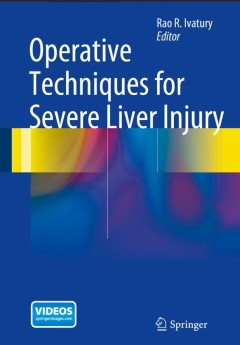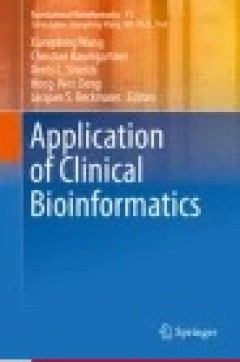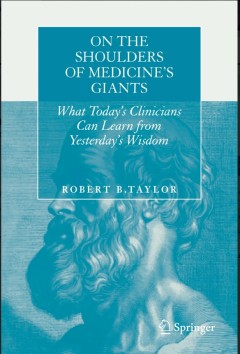Filter by

A Defense of Abortion
David Boonin has written the most thorough and detailed case for the moral permissibility of abortion yet published. Critically examining a wide range of arguments that attempt to prove that every human fetus has a right to life, he shows that each of these arguments fails on its own terms. He then explains how even if the fetus does have a right to life, abortion can still be shown to be moral…
- Edition
- -
- ISBN/ISSN
- 9780511610172
- Collation
- -
- Series Title
- Cambridge Studies in Philosophy and Public Policy
- Call Number
- -

Theory and Practice of Risk Assessment ICRA 5, Tomar, Portugal, 2013
This book covers the latest results in the field of risk analysis. Presented topics include probabilistic models in cancer research, models and methods in longevity, epidemiology of cancer risk, engineering reliability and economical risk problems. The contributions of this volume originate from the 5th International Conference on Risk Analysis (ICRA 5). The conference brought together research…
- Edition
- -
- ISBN/ISSN
- 978-3-319-18029-8
- Collation
- -
- Series Title
- -
- Call Number
- -

The Unhappy Total Knee Replacement A Comprehensive Review and Management Guide
This book addresses the need for improved diagnostic and treatment guidelines for patients in whom total knee arthroplasty (TKA) has had an unsatisfactory outcome. It opens by discussing the basics of TKA and the various causes of failure and pain. Diagnostic aspects are considered in detail, with attention to advances in clinical investigation, laboratory analysis and in particular, imaging te…
- Edition
- -
- ISBN/ISSN
- 978-3-319-08099-4
- Collation
- -
- Series Title
- -
- Call Number
- -

The Surgions Mate The First Compendium on Naval Medicine, Surgery and Drug T…
This book reproduces and comments John Woodall’s handbook which was used as standard text for medical treatment at sea in the seventeenth century and was the first instruction for medical service aboard on the whole. In 1612 the East India Company, founded in London 1600 and invested with special royal privileges and authority, appointed John Woodall as its first surgeon-general, who had g…
- Edition
- -
- ISBN/ISSN
- 978-3-319-25574-3
- Collation
- -
- Series Title
- -
- Call Number
- -

Operative Techniques for Severe Liver Injury
This volume is a complete manual of operative techniques for battling a severe liver injury. It provides an easy pre-operative and intra-operative reference with clear illustrations, line drawings as well as actual intra-operative color pictures, supplemented by online video segments. The early sections of the book deal with the fundamentals of surgical anatomy and critical maneuvers in the res…
- Edition
- 1
- ISBN/ISSN
- 978-1-4939-1199-8
- Collation
- XIII, 165
- Series Title
- -
- Call Number
- -

The Shock Trauma Manual of Operative Techniques
This manual provides a practical approach to operative trauma management. Written entirely by physicians who currently practice in shock trauma, the manual features a hands-on approach and practice to dealing with shock trauma that is regularly utilized by the faculty at the R Adams Cowley Shock Trauma Center. The volume includes numerous photographs that illustrate operative techniques in grea…
- Edition
- -
- ISBN/ISSN
- 978-1-4939-2371-7
- Collation
- -
- Series Title
- -
- Call Number
- -

The Serpin Family Proteins with Multiple Functions in Health and Disease
The book provides an comprehensive overview on biology, genetics and cellular functions of serpins (serine protease inhibitors) in health and disease. With over 1000 members serpins are the most diverse family of protease inhibitors. Latest groundbreaking research findings are presented and broaden the understanding on inhibitory and non-inhibitory serpins, not only in mammalian organisms but a…
- Edition
- -
- ISBN/ISSN
- 978-3-319-22711-5
- Collation
- -
- Series Title
- -
- Call Number
- -

Application of Systems Thinking to Health Policy & Public Health Ethics: Publ…
This book looks at health policy through the lens of public versus private: population health versus the somatic, social, or emotional experiences of a patient. Rather than presenting policy/ethics as overly technical, this book takes a novel approach of framing public and private health in terms of political philosophy, ethics, and popular examples. Each chapter ties back to the general ethics…
- Edition
- Ed. 1
- ISBN/ISSN
- 978-3-319-12203-8
- Collation
- XI, 100
- Series Title
- SpringerBriefs in Public Health
- Call Number
- 614 BAT a

Application of Clinical Bioinformatics
This book elucidates how genetic, biological and medical information can be applied to the development of personalized healthcare, medication and therapies. Focusing on aspects of the development of evidence-based approaches in bioinformatics and computational medicine, including data integration, methodologies, tools and models for clinical and translational medicine, it offers an essential in…
- Edition
- Ed. 1
- ISBN/ISSN
- 978-94-017-7543-4
- Collation
- VI, 398
- Series Title
- Translational Bioinformatics
- Call Number
- 003.54 APP a

On the Shoulders of Medicine's Giants
Medical history offers us many wise thoughts, a few misguided notions, and a host of intriguing back-stories. On the Shoulders of Medicine’s Giants presents a selection of these, and tells how the words of medicine’s “giants”—such as Hippocrates, Sir William Osler, Francis Weld Peabody, and Elizabeth Kübler-Ross—are relevant to medical science and practice in the 21st century. Whi…
- Edition
- 1
- ISBN/ISSN
- 978-1-4939-1334-3
- Collation
- XIV, 251
- Series Title
- -
- Call Number
- -
 Computer Science, Information & General Works
Computer Science, Information & General Works  Philosophy & Psychology
Philosophy & Psychology  Religion
Religion  Social Sciences
Social Sciences  Language
Language  Pure Science
Pure Science  Applied Sciences
Applied Sciences  Art & Recreation
Art & Recreation  Literature
Literature  History & Geography
History & Geography